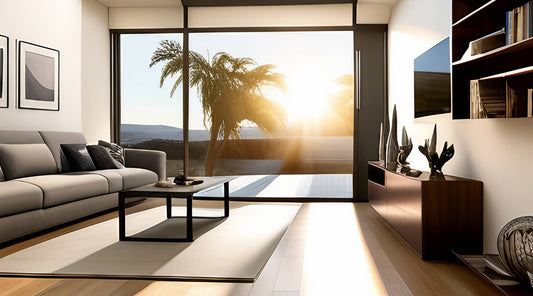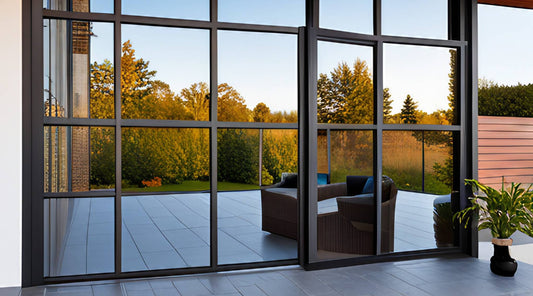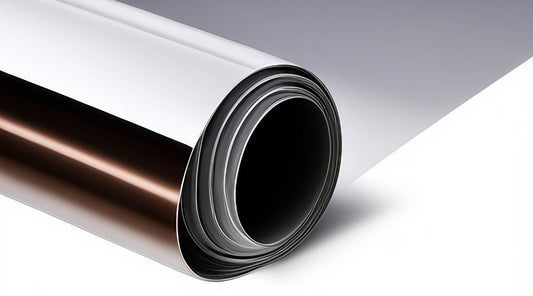Window films are becoming an increasingly popular choice for homeowners looking to enhance their space. These films are versatile, offering various benefits such as heat reduction, UV protection, privacy enhancement, and energy efficiency. But what makes window films stand out in the home improvement world? And how do you go about selecting the right one for your needs? Let’s dive in.
What Are Window Films?
Window films are thin layers of material applied directly to the glass surface of windows. These films come in various types and provide a range of benefits that can significantly enhance your home’s comfort, style, and security. Whether you're looking to block heat, reduce glare, or increase privacy, there’s a window film designed to suit your needs.
Types of Window Films
Window films can be categorized based on their purpose. Some common types include:
- Solar Films: Designed to block UV rays and heat, these films help improve energy efficiency by keeping your home cooler during hot weather.
- Security Films: Made from a thicker, stronger material, these films are ideal for increasing the strength of your windows and preventing break-ins.
- Decorative Films: Offering a wide range of designs, these films add a stylish touch to your windows while also providing benefits like privacy and glare reduction.
- Privacy Films: These films allow natural light to filter in while obscuring the view from the outside, perfect for bedrooms or bathrooms.
Benefits of Window Films
Why should you consider window films for your home? Here are some of the most notable benefits:
- Improved Energy Efficiency: Window films can reduce your energy bills by preventing heat from entering your home in the summer and reducing heat loss in the winter. You can save money on your HVAC system while maintaining comfort.
- UV Protection: UV-blocking window films shield your furniture, flooring, and artwork from harmful UV rays that can cause fading over time.
- Increased Privacy: Privacy films provide an excellent way to keep prying eyes away without compromising on natural light.
- Enhanced Security: Security films increase the strength of your windows, making it harder for burglars to break in and offering protection against shattering from accidents or extreme weather.
Cost vs. Benefit
While window films may require an upfront investment, the long-term benefits are undeniable. In addition to energy savings, they also help reduce wear and tear on your furniture and flooring. Plus, some window films come with warranties, ensuring that your investment lasts for years to come.
How to Choose the Right Window Film
Choosing the right window film depends on your specific needs. Here’s a simple guide to help you make an informed decision:
- Determine Your Needs: Are you looking to reduce heat, block UV rays, enhance privacy, or increase security? Identifying your primary goals will help narrow down the options.
- Consider the Type of Film: Once you know your needs, consider which type of window film best suits your home—solar, security, decorative, or privacy films.
- Professional vs. DIY Installation: While DIY installation is possible for some types of films, professional installation ensures that the job is done correctly and efficiently, especially for security and custom films.
- Check the Tint Level: Window films come in various tint levels, from clear to darker shades. Choose a tint level that meets your needs for privacy, sunlight, and aesthetics.
Installation Considerations
While some window films can be installed as a DIY project, professional installation is often the best choice for achieving optimal results. A professional installer will ensure that the film is applied evenly and free of bubbles or wrinkles. This is particularly important for films that are designed to offer UV protection or increase security.
Final Thoughts
Window films are a fantastic solution for homeowners looking to enhance their living spaces in a practical and stylish way. Whether you're focused on energy efficiency, security, or privacy, there's a film out there that can meet your needs. Just be sure to consider the type of film, the level of tint, and whether you want a DIY or professional installation before making your choice.




